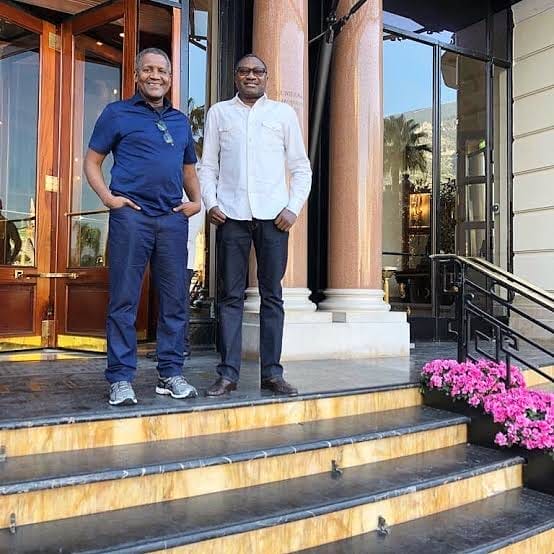In today’s Africa, wealth is no longer siloed—it’s synergized. A wave of elite-led collaborations is powering new economic frontiers, forging partnerships that transcend borders, industries, and ideologies. No longer content to dominate individual sectors, Africa’s high-net-worth individuals, influential families, and visionary entrepreneurs are joining forces—leveraging trust, capital, and networks to unlock large-scale transformation.
Whether through private investment vehicles, joint philanthropic missions, regional business councils, or cross-sector innovation hubs, these alliances signal a quiet but powerful revolution: Africa’s elite are choosing cooperation over competition in the pursuit of continental prosperity.
From Private Empires to Collaborative Ecosystems
For decades, many of Africa’s wealthiest individuals ran their businesses as insular empires—family-owned, privately managed, and often risk-averse. But in the last ten years, global shifts and continental integration efforts have forced a strategic pivot. Now, joint ventures, multi-family investment groups, and syndicate-backed infrastructure projects are becoming the norm.
Take the African Business Coalition for Health (ABCHealth), founded by Aliko Dangote and Aigboje Aig-Imoukhuede. It is a perfect example of high-level elite collaboration with a shared public outcome: strengthening Africa’s health systems. Funded by the private sector and supported by regional governments, it mobilizes both capital and expertise for systemic impact.
Similarly, initiatives like Future Africa—a venture capital firm led by Iyinoluwa Aboyeji—bring together tech elites and legacy investors to fund bold startups in fintech, agritech, and climate resilience. It’s not just about returns; it’s about shaping the kind of Africa that elite investors want to live in.
Regional Powerhouses Linking Arms
East meets West in more ways than flights and trade routes. Increasingly, powerful elites across Africa’s regions are co-investing in cross-border ventures. A landmark example is the recent partnership between Kenya’s Centum Investments and Nigerian conglomerate Heirs Holdings. Together, they are developing energy and industrial assets aimed at regional self-sufficiency—one power plant, logistics corridor, and industrial park at a time.
Such collaborations are often supported by institutions like the African Continental Free Trade Area (AfCFTA), which provides the legal and regulatory scaffolding for cross-border investment. Behind the scenes, private WhatsApp groups, investment summits, and legacy family networks are turning these policy frameworks into deals.
Elite Women Leading Pan-African Change
Women are increasingly central to this collaborative elite network. From Ibukun Awosika’s board-level influence to South Africa’s Phuti Mahanyele-Dabengwa (CEO of Naspers South Africa) and Cameroon’s Rebecca Enonchong in the tech world, elite women are fostering platforms for gender-inclusive economic growth.
One standout example is the Women Working for Change (WFC) initiative, a coalition of female CEOs and ministers that convenes annually across African cities. Here, strategies are discussed on education access, women-led venture funding, and inclusive policy reforms—all driven by top-tier leaders who control real levers of influence.
Culture, Capital & the New African Renaissance
Elite collaborations aren’t limited to traditional sectors. Culture has become a strategic economic lever. In 2024, a pan-African media consortium formed between Nigeria’s Ebonylife Studios, South Africa’s Multichoice, and Morocco’s Hiba Foundation to develop high-quality African storytelling for global distribution. This alliance ensures that Africa’s creative economy is not merely exported—but owned and monetized by Africans.
In the fashion and art worlds, collaborations like the African Fashion Foundation (AFF) are bringing together designers, collectors, and patrons from elite circles to develop manufacturing hubs and export pipelines—thereby turning culture into capital.
Impact Investing as the New Influence
Africa’s elite are increasingly blending philanthropy with profitability. Family offices are setting up impact funds targeting education, green energy, and SME empowerment. The Mo Ibrahim Foundation, the Tony Elumelu Foundation, and the Motsepe Foundation are case studies in this hybrid model—where elite wealth becomes a catalyst for long-term structural transformation.
Meanwhile, co-investments in African fintech and logistics are helping to digitize informal economies and improve supply chain efficiency—key accelerators for national GDP growth. When Africa’s wealthiest collaborate in such ventures, the impact radiates far beyond boardrooms.
Conclusion: United Circles, Accelerated Futures
Africa’s economic destiny is no longer in the hands of solitary giants but in the collective will of strategic alliances. By joining forces, the continent’s elite are not only maximizing profits—they’re building systems. They’re scaling trust. They’re rewriting the African growth story from within.
In a world fractured by competition and nationalism, Africa’s elite are proving that true power lies in partnership. Their collaborations are not just reshaping economies—they are redrawing the map of influence, from Lagos to Kigali, Nairobi to Casablanca.
And as this alliance of influence continues to grow, one thing is certain: Africa’s rise will be a shared ascent.




